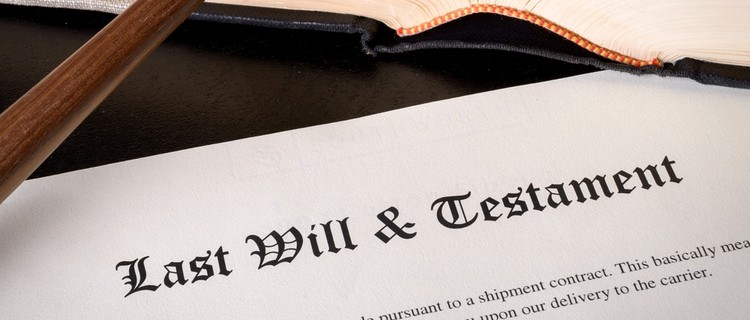
Nobody wants to think about what will happen when they die, or should they become too ill to make decisions. But they are important considerations to make in relation to your finances and overall wellbeing.
Apathy for these areas means that many Brits aren’t taking two important steps; writing a will and naming a Lasting Power of Attorney (LPA).
Will
Your will essentially lets you tell everyone what you want to happen to your assets when you die. A will is crucial for ensuring that your wishes are carried out as you have planned.
However, research suggests that it’s an important document many don’t possess. More than half of UK adults don’t have a will, research from Unbiased revealed. Some 31 million people in the UK are at risk of having their money, property and other assets distributed in a way that does not reflect their wishes.
Perhaps unsurprisingly, those aged over 55 are more likely to have a will in place. But even in this age bracket, 37% have yet to formally note their wishes. While younger generations are far less likely to have a will, they are also more likely to have dependents and financial commitments, such as a mortgage. But almost three quarters (72%) of those aged between 35 and 54 haven’t taken steps to ensure their estate is distributed to their loved ones.
What happens if you die without a will?
Should you die without a will in place, your assets will be distributed according to intestate law. It’s unlikely that these will align with your wishes and your loved ones will have no control over what happens.
For modern families, intestate laws will usually not suit your wishes. For example, if you have children from a previous relationship and have since married, it’s likely they will not inherit anything at all. Conversely, if you’re not married or in a civil partnership, your partner is unlikely to receive anything under intestate laws too.
As a result, it’s crucial that you write a will. This gives you an opportunity to say exactly who you want to benefit from the estate you leave behind and the portion they receive. You can also specify other wishes, such as instructions for a funeral.
Having your will written doesn’t have to be complex or costly. For most people, it will be a straightforward process.
Lasting Power of Attorney
A Lasting Power of Attorney (LPA) allows you to give one or more people the power to manage your estate should you be unable to make decisions yourself, due to illness or injury for example. An LPA must be set up when you have the capacity to make your own decisions. As a result, it’s important to think about an LPA well before you think it will need to be used.
There are two types of LPA and you should have both in place: a health and welfare LPA and a property and financial affairs LPA.
Despite the importance of an LPA, many Brits still don’t have one. In fact, millions are at risk should they be unable to make their own decisions. In 2016/17, just 726,000 people had appointed someone they can trust to have control over their affairs should it become necessary, data from the Office of National Statistics revealed.
What happens if you don’t have a Lasting Power of Attorney?
Should you be unable to make your own decisions, it can be incredibly difficult for your loved ones to decide on your behalf without an LPA. It can not only mean more stress and expense for them but affect your financial position and wellbeing too.
You may think that if you have joint accounts or financial obligations, your partner will automatically be able to make decisions for you. But this isn’t the case. Joint bank accounts, for example, may be frozen if you don’t have the mental capacity to make decisions. Even if you’re married or in a civil partnership, your partner doesn’t have an automatic right to handle your affairs.
If you lose the capacity to make your own decisions and don’t have a valid LPA, your loved ones would need to apply to the Court of Protection. This is a process that’s far more expensive than setting out an LPA and can be lengthy too, meaning decisions about your finances and wellbeing are delayed.
While people are more likely to think about it as they approach old age, accidents and illnesses can occur at any stage of life. As a result, it’s a step that can provide protection should the unexpected happen.
Registering an LPA is affordable, and you don’t need to use a solicitor unless you choose to do so.
Keeping your will and LPA up to date
Even if you have a will and LPA in place, it’s important to review them regularly. Your circumstances change, and this may affect what you want to happen to your estate or should you need to rely on an LPA.
For example, you may have initially named your partner as your LPA. But as they get older too, they may no longer have the mental capacity to make decisions on your behalf. As a result, you could benefit from making children or other loved ones an attorney at a later date.
If you want to discuss how a will and LPA should form part of your overall financial plan, please contact us today. We can support you throughout the process, and ensuring you have everything in order and in line with your wishes.
